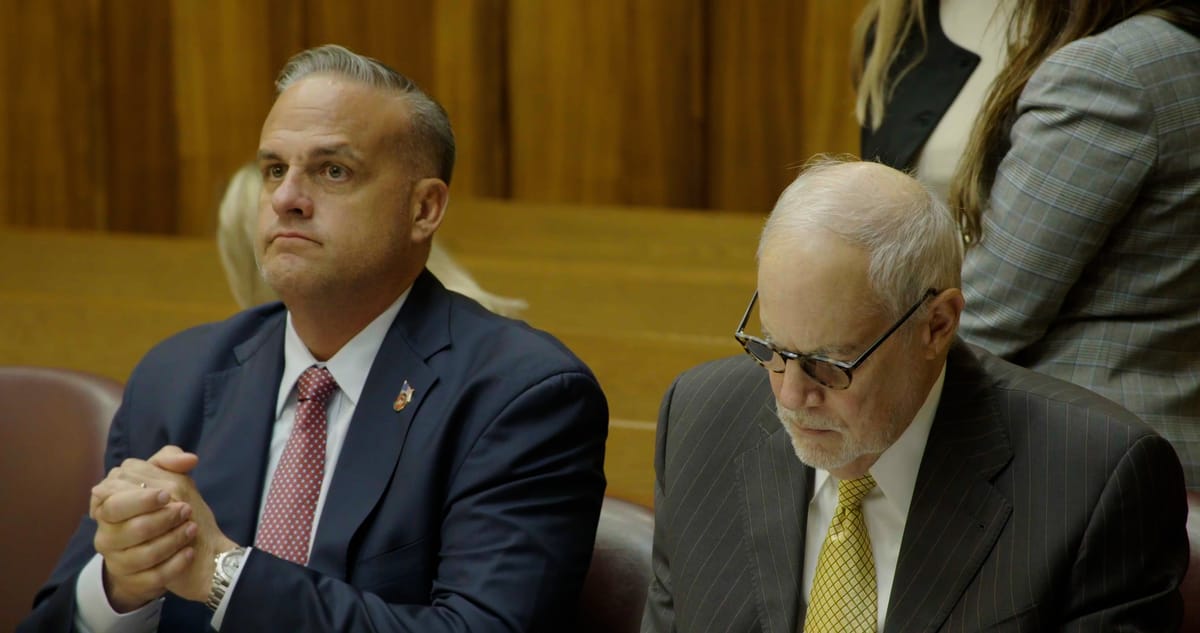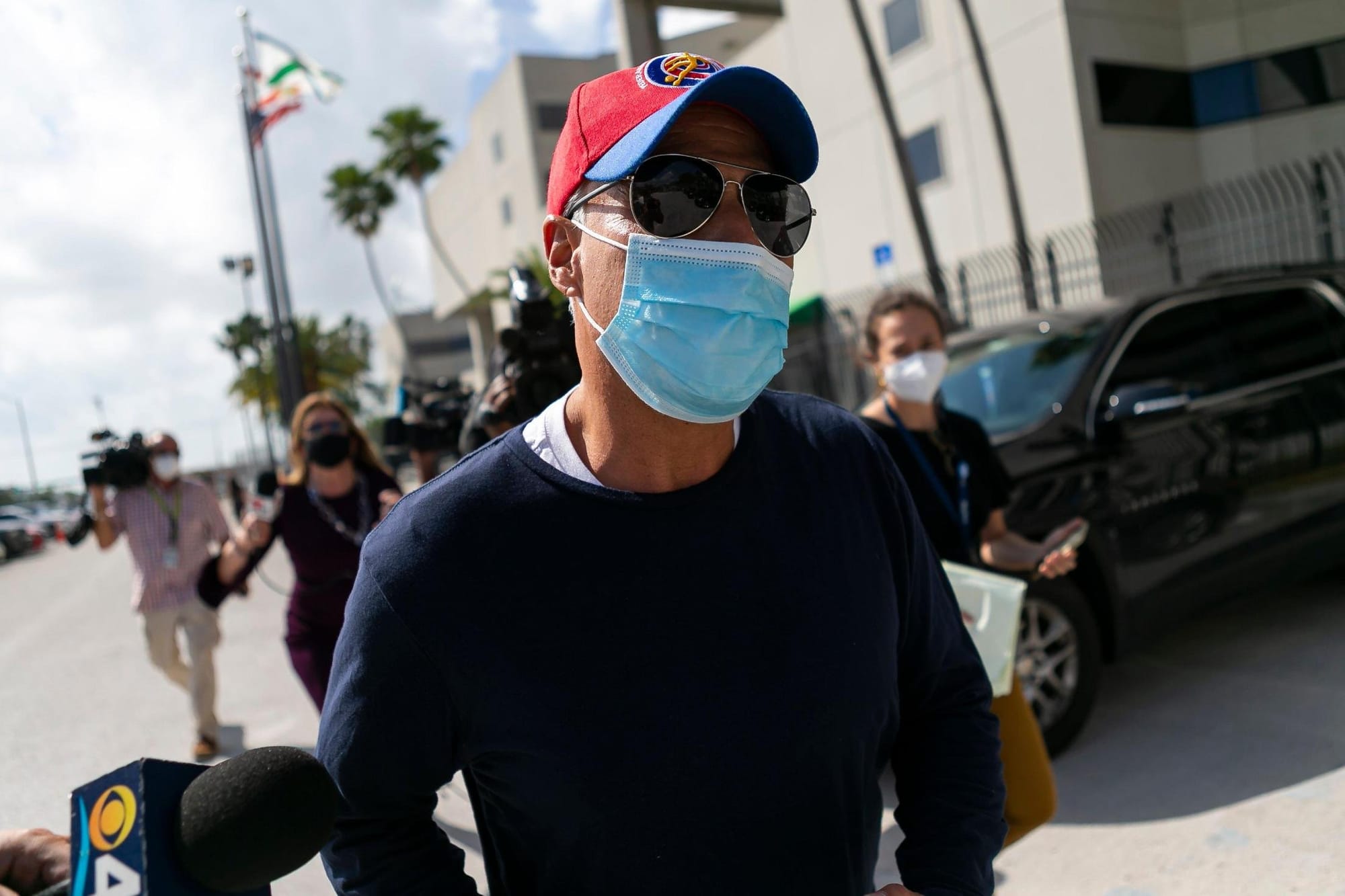Ex-Florida senator guilty in election case sentenced to 60 days in jail
Frank Artiles was found guilty on three election-related counts after running a no-party spoiler candidate in a 2020 Florida Senate race.

Former Florida state Sen. Frank Artiles was sentenced Monday to 60 days in county jail for his central role in the 2020 "ghost candidate" election scandal.
Artiles, 53, was found guilty in September on three counts related to orchestrating the candidacy of Alex Rodriguez, who ran as a no-party candidate in Florida's District 37 Senate race. At trial, Prosecutors argued that Rodriguez, whose campaign was funded and managed by Artiles, was used to siphon votes from Democratic incumbent José Javier Rodriguez, ultimately helping Republican challenger Ileana Garcia secure a 32-vote victory in the tight race.
Artiles’ conviction — for conspiracy, making illegal campaign contributions and false swearing — follows a lengthy investigation by prosecutors and news media into the role of “dark money” groups, political consultants and powerful utility interests in manipulating Florida's political landscape.
“What I've come to believe is that the Republican party ran one campaign with two candidates,” said Jose Javier Rodriguez, who is now Assistant Labor Secretary, at the sentencing hearing.
“The Tallahassee power brokers who seem to continue using these corrupt schemes to solidify their hold on power seem to keep getting away with it,” the former state senator said. “This is as far as I can tell the only instance with a potential of accountability.”
Artiles was also sentenced to five years of probation for each count, as well as 500 hours of community service. The judge granted a request to withhold adjudication, or not formally convict Artiles, so that he could retain civil liberties. He also agreed to stay the sentencing until a status hearing in December, since Artiles’ lawyers plan to appeal.
Prosecutors had asked the judge to sentence Artiles to three consecutive 364-day terms in county jail.
Circuit Judge Miguel de la O said he agreed with the jury’s verdict and added “just because you can do it, doesn’t mean you should, and just because it’s legal doesn’t mean it’s right.”
De la O said it’s clear the campaign finance system is broken, although that’s not what this case was deciding. He decried the “tribal politics” that he said led to the crimes.
Ghost candidate Rodriguez, a heavy equipment salesman, admitted under oath to his role in the scheme, describing how he was paid to run for office with no intention of winning. He testified that he was offered $50,000 by Artiles to enter the race and was given guidance on how to file the necessary paperwork. Rodriguez later pleaded guilty to election-related charges and agreed to cooperate with the prosecution in exchange for reduced sentencing.

Artiles' defense team argued that "ghost candidates" are legal in Florida and that the actions taken to fund and facilitate Rodriguez's campaign did not violate state election laws. The former senator’s defense team also tried to paint the spoiler candidate, who was the prosecution's chief witness, as deceitful and untrustworthy.
The scandal has drawn attention to the influence of Florida Power & Light (FPL) and top Florida Republican political players, who were implicated in funding the ghost candidate campaigns through a series of opaque nonprofit groups. The utility company, which has long dominated Florida's energy market, was seeking to cement a Republican supermajority in the state Senate to push through legislation favorable to its interests.
“Were it not for intrepid reporting, by a number of folks, including Floodlight and others, we would never have known that Florida Power and Light was ultimately a source of this money,” Assistant Labor Secretary Rodriguez said at the sentencing in reference to the funds that promoted the ghost candidate.
Artiles, who resigned from the Senate in disgrace in 2017 after using racial slurs, had a history of ties to powerful political operatives and consultants working for FPL. His involvement in the ghost candidate scheme came at a time when Florida's political system was under criticism for its lax regulations regarding difficult-to-trace campaign spending, or “dark” money, and political influence.
The trial exposed a complex web of political maneuvering, with consultants and operatives using industry money behind the scenes to secure an electoral advantage for Florida’s Republicans in four Senate races and a county commission race during the 2018 and 2020 election cycles. Artiles’ attorneys have vowed to appeal the guilty verdict and the judge’s ruling.
Emily Holden contributed to this story. Floodlight is a nonprofit newsroom that investigates the powerful interests stalling climate action.


